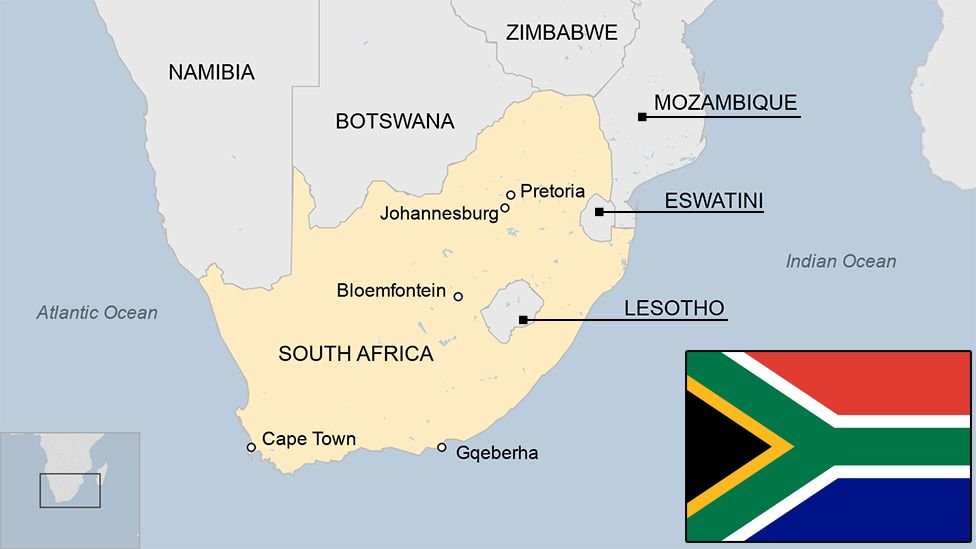Introduction to Xenophobia in South Africa
Xenophobia, defined as the fear or hatred of that which is perceived to be foreign or strange, has unfortunately found deep roots in South Africa’s socio-political landscape. This complex phenomenon manifests through prejudice, hostility, and discrimination against those deemed ‘outsiders,’ often resulting in acts of violence and social exclusion. The history of xenophobia in South Africa is not recent; it can be traced back to the colonial and apartheid eras, where societal divisions were rigidly enforced, embedding a culture of exclusion and distrust towards outsiders.
During the apartheid regime, policies were largely influenced by xenophobic sentiments, aimed at reinforcing ethnic and national segregation. Although apartheid ended in 1994, the residual effects of these policies continued to influence social attitudes, often exacerbating economic and social tensions. Post-apartheid South Africa has seen sporadic but severe waves of xenophobic violence, notably in 2008 and 2019, targeting immigrants from other African countries and contributing significantly to national and international concerns.
Understanding xenophobia within the South African context requires a multi-faceted approach, given its intersection with historical legacies, economic disparities, political dynamics, and social structures. It is essential to look beyond the acts of violence, delving into the underlying causes and the broader socio-economic environment that fuels such hostility. The importance of addressing xenophobia in contemporary South Africa lies in its impact on social cohesion, human rights, and the nation’s global standing.
Thus, comprehending this phenomenon is crucial for crafting effective solutions aimed at fostering tolerance and unity. In the subsequent sections of this article, we will explore the causes, consequences, and potential solutions to xenophobia in South Africa, aiming to provide a comprehensive understanding of this pressing issue.
“`html
Historical Context: Apartheid and Beyond
The roots of xenophobia in South Africa are deeply entrenched in the nation’s history, particularly during the apartheid era. Established in 1948, apartheid was a policy of institutionalized racism and segregation that profoundly shaped social and economic structures in the country. Racial groups were systematically divided, and access to resources and opportunities was heavily restricted based on race. This era cultivated an environment of severe discrimination and hostility, extending well beyond the dismantling of apartheid in 1994.
During apartheid, the South African government used a variety of strategies to control the population and maintain white supremacy. Non-white citizens, including Black Africans, Indians, and Colored people, were marginalized and disenfranchised, leading to deep-rooted social and economic disparity. Immigrants, particularly from neighboring African countries, were often perceived as threats, exacerbating feelings of distrust and competition among locals. The fear of ‘the other’ was instilled as a means of preserving control, sowing the seeds for later xenophobic attitudes.
Moreover, economic instability and competition during and after apartheid have perpetuated xenophobia. The labor market became a battlefield as both local South Africans and foreign nationals competed for limited job opportunities. High unemployment rates and economic disparity magnified feelings of resentment, with foreign nationals frequently scapegoated for the economic challenges faced by the country. Rather than addressing systemic issues, xenophobic sentiments were often manipulated politically, diverting frustration away from governance failures to external entities.
In the post-apartheid era, despite efforts to build a more inclusive society, the legacy of apartheid continues to linger. Historical inequalities and persisting economic strife contribute to ongoing xenophobic tendencies. The cultural mistrust and fear cultivated during apartheid have been difficult to dismantle, illustrating how historical contexts continue to shape contemporary dynamics. Understanding these historical underpinnings is crucial for addressing and mitigating xenophobia in present-day South Africa.
“`
Economic Factors Contributing to Xenophobia
Economic disparities play a significant role in fostering xenophobic sentiments in South Africa. With the country grappling with high unemployment rates, many citizens perceive immigrants as competitors for increasingly scarce job opportunities. The unemployment rate hovered around 34% in 2021, affecting millions of South Africans who already face economic instability. Against this backdrop, immigrants, particularly those engaged in the informal sector, are often scapegoated as contributing to economic hardships.
Economic inequality exacerbates these tensions further. South Africa is one of the most unequal societies globally, with a Gini coefficient consistently above 0.6. Wealth distribution is highly skewed, leaving a significant portion of the population in poverty. This disparity fuels resentment towards foreign nationals perceived to be thriving amid local economic struggles. Immigrants are often accused of “taking jobs” or “driving down wages,” despite studies indicating that they generally take up low-skilled or informal work that locals are less inclined to do.
Indeed, the informal economy plays a crucial role in this dynamic. Many immigrants find employment in sectors such as street vending, construction, and domestic work. While these jobs are vital for the overall economy, they are informal and unregulated, making it easier for anti-immigrant sentiments to fester. The perception that foreign nationals dominate these informal sectors only amplifies xenophobic attitudes, particularly when economic conditions are dire.
Furthermore, the labor market in South Africa is highly competitive, and the formal sector is not adequately absorbing the workforce. Due to systemic issues like skill mismatches and a lack of inclusive economic policies, many South Africans feel they are being left behind, while observing immigrants functioning effectively within the same economic ecosystem. Consequently, the lack of adequate job opportunities and equitable wealth distribution fosters an environment where xenophobia can thrive.
In summary, the economic factors contributing to xenophobic sentiments in South Africa are multifaceted. High unemployment rates, extensive economic inequality, and perceived competition for jobs between South Africans and immigrants create a fertile ground for anti-immigrant and xenophobic attitudes to grow. Addressing these economic disparities is essential for mitigating xenophobia and fostering a more inclusive society.
Cultural and Social Dynamics
The complex cultural and social dynamics within South African society play a significant role in the prevalence of xenophobia. Societal attitudes toward immigrants are shaped by longstanding stereotypes and misconceptions, which often paint foreign nationals as the cause of unemployment, crime, and other social ills. These attitudes are deeply embedded in the collective psyche and are perpetuated through various channels, including media and political rhetoric.
Tribalism further complicates the cultural landscape, creating an “us versus them” mentality that fosters resentment and hostility. Tribal affiliations and loyalty to ethnic groups can exacerbate the exclusion of outsiders, especially those from different cultural backgrounds. This tribal allegiance frequently leads to a heightened sense of cultural preservation, where any foreign influence is viewed as a threat to traditional values and practices.
The rapid urbanization and migration patterns experienced by South Africa have significantly contributed to the strain on social cohesion. Urban areas, which are often the first ports of call for immigrants, face intense resource competition. The influx of individuals into already crowded and under-resourced environments heightens existing tensions, making it easier for xenophobic sentiments to take root and flourish. Furthermore, migrants seeking better economic opportunities tend to settle in townships and informal settlements, where they become easy scapegoats for broader systemic issues.
Misunderstandings about the contributions of immigrants further deepen xenophobic tendencies. It is commonly overlooked that many immigrants bring valuable skills and entrepreneurial spirit, which can benefit the economy. However, the lack of positive narratives about immigrants contributes to an imbalanced perception, overshadowed by fear and prejudice. Addressing these cultural and social dynamics requires a multi-faceted approach, focusing on education, inclusive policies, and a shift in societal norms and values, aimed at promoting mutual respect and understanding.
Government Policies and Political Rhetoric
Government policies and political rhetoric have played a crucial role in shaping the public’s perception of foreign nationals in South Africa. Historically, certain legislative measures have inadvertently fueled xenophobic sentiments, while others have sought to counteract this hazardous mindset. The duality of these initiatives underscores the complexity of addressing xenophobia at a governmental level.
One of the most contentious policies has been the Immigration Act of 2002, which aimed to regulate the entry and residence of foreigners. While the act was designed to bolster national security and control illegal immigration, critics argue that its enforcement has often been heavy-handed, leading to discriminatory practices that stigmatize immigrants. Law enforcement agencies, under the guise of curbing illegal activities, have sometimes engaged in practices that border on harassment, further entrenching negative sentiments against foreign nationals.
Political rhetoric has also significantly influenced xenophobic attitudes. Political leaders, particularly during election cycles, have occasionally resorted to populist narratives that cast immigrants as scapegoats for socio-economic woes such as unemployment and crime. Such rhetoric not only amplifies existing prejudices but also legitimizes xenophobic behavior among the populace. For instance, during certain campaign periods, statements emanating from political figures have blamed immigrants for job shortages, thereby fanning the flames of xenophobia.
Conversely, there have been efforts from various administrations to mitigate these tensions. Policies aimed at integrating immigrants into the workforce and equitable access to social services show a commitment to inclusivity. Additionally, political figures have periodically made public appeals for harmony and coexistence. However, the impact of these positive messages is often undermined by inconsistent enforcement and political ambivalence.
The South African government finds itself in a precarious position, balancing the need for national security and economic stability with the imperative to foster an inclusive society. The efficacy of their efforts remains contingent on the consistency of their messaging and the fairness of their policies. Achieving equilibrium between these factors is paramount for attenuating xenophobic tendencies and cultivating a more harmonious social fabric.
Media and Xenophobia
The media plays a pivotal role in shaping public perceptions and attitudes towards immigrants in South Africa. It holds the potential to either propagate xenophobic sentiment or foster an environment of understanding and tolerance. Through various forms, such as news outlets and social media, the media has the power to influence societal views significantly.
News outlets often serve as the primary source of information for the public. However, the framing of stories about immigrants can have substantial effects. Sensationalism in reporting, where immigrant-related incidents are exaggerated or depicted in a negative light, can fuel xenophobic attitudes. Headlines that emphasize criminal activities associated with foreigners or that portray immigrants as a threat to local jobs and resources tend to perpetuate fear and hostility among the populace.
Conversely, media can also play a constructive role by highlighting the positive contributions of immigrants to South African society. Stories that celebrate the cultural diversity, economic contributions, and social integration of immigrants can help in countering negative stereotypes and promoting tolerance. Such balanced reporting can mitigate xenophobic tendencies and foster mutual respect between locals and immigrants.
Social media platforms have become another significant arena where xenophobia can either be exacerbated or alleviated. The rapid spread of misinformation and fake news on these platforms can stoke xenophobic sentiments, as individuals often share unverified or sensational content. Algorithms that prioritize provocative content can further amplify these harmful narratives.
However, social media can also be harnessed to educate the public and promote inclusivity. Campaigns that emphasize shared human experiences and common goals can help in building bridges between communities. By actively countering false information and providing factual, humanizing stories about immigrants, social media can become a tool for positive change.
In summary, the media holds substantial responsibility in shaping societal attitudes towards immigrants in South Africa. While it can perpetuate xenophobia through sensationalism and misinformation, it also has the potential to promote understanding and tolerance through balanced and inclusive reporting. Effective media representation is essential in addressing and reducing xenophobic tendencies within society.
Consequences of Xenophobia
The ramifications of xenophobia in South Africa are profound and far-reaching, affecting both the social fabric and economic stability of the nation. Socially, xenophobic behavior has led to increased tension and division within communities. Native South Africans and immigrants often find themselves in conflict, creating an atmosphere of distrust and hostility. Immigrants, in particular, face social isolation and discrimination, making it difficult for them to integrate and contribute positively to society.
Economically, xenophobia carries significant consequences. Many immigrants play a crucial role in various sectors, from retail to manufacturing. Hostility towards these individuals results in a loss of skilled labor and entrepreneurial potential. Businesses owned by immigrants are frequently targeted during xenophobic attacks, leading to their destruction and, consequently, economic setbacks. These actions not only impact the livelihood of immigrant entrepreneurs but also affect the overall economic health of the communities they serve.
Psychologically, the effects of xenophobia are equally damaging. Victims of xenophobic violence often experience trauma, stress, and a pervasive sense of insecurity. This emotional toll disrupts their capacity to lead normal lives and pursue opportunities. Moreover, South African citizens who witness or participate in such violence can also suffer from psychological repercussions, including guilt, fear, and desensitization to violence.
Significant events such as the 2008 xenophobic attacks and more recent episodes illustrate the severe impacts of such behavior. These incidents not only resulted in loss of lives and property but also highlighted the deep-seated issues within South African society. The recurrent nature of these attacks underscores the urgent need for addressing the roots of xenophobic sentiments and implementing sustainable solutions.
In examining these consequences, it becomes evident that xenophobia is not just an issue for immigrants but for the entire South African society. Addressing this problem holistically is crucial for fostering a more inclusive, stable, and prosperous nation.
Strategies for Combating Xenophobia
To address xenophobia effectively in South Africa, a multifaceted approach is indispensable. One critical strategy involves the implementation of community initiatives that foster inclusivity and understanding among diverse groups. Local projects such as intercultural dialogues, communal events, and collaborative ventures can bridge the gap between native South Africans and immigrants, dissipating misconceptions and promoting solidarity.
Educational programs are equally essential in tackling xenophobia. Curriculum reforms that include comprehensive lessons on cultural diversity, human rights, and the detrimental effects of xenophobic sentiments can significantly influence young minds. Schools and universities should champion these educational efforts to nurture an informed and tolerant generation. Furthermore, public awareness campaigns—utilizing media platforms, social networks, and public speaking engagements—can amplify these educational endeavors, reaching a broader audience.
On the policy front, governments must enact and enforce legislation that protects against discrimination and promotes equality. Anti-xenophobic laws, coupled with strict penalties for perpetrators of hate crimes, send a strong message regarding a nation’s stance on intolerance. Additionally, policies that facilitate the integration of immigrants into the workforce and community—such as language training, job placement services, and anti-discrimination workshops—enable a smoother, more respectful coexistence.
International cooperation also plays a pivotal role in combating xenophobia. Countries must collaborate to share successful strategies and resources, strengthen diplomatic relations, and uphold international human rights standards. Benchmarking against nations that have successfully reduced xenophobic tendencies through innovative policies and robust community programs can provide valuable insights. For instance, Canada’s Immigrant Settlement and Integration Program offers a compelling model of how policy and practice can harmoniously converge to foster an inclusive society.
Ultimately, combatting xenophobia requires a collective effort from individuals, communities, educational institutions, governments, and international bodies. By leveraging a combination of inclusive community initiatives, educational reforms, stringent policies, and international cooperation, a more harmonious society, where diversity is celebrated rather than feared, can be achieved.





